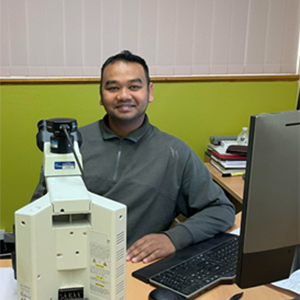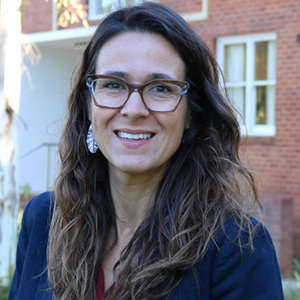Connect and collaborate
We are looking for researchers, students, funding and partners to help take our research to the next level.
The biosecurity research program at Gulbali Institute faces the formidable challenge of addressing the rapid evolution and spread of viruses, exacerbated by globalization and environmental changes. The program aims to harness interdisciplinary collaborations and innovative technologies to develop effective detection, prediction, and management strategies for viral threats, ensuring robust responses that protect public health and agriculture in an increasingly interconnected world.
The research is underscored by three core objectives:
Formation of a cohesive, innovative, and multifaceted biosecurity research Program dedicated to exploring the vast landscape of biosecurity.
Pioneering advanced biosecurity solutions, through the creation of predictive models, detection methodologies, risk assessment tools, and the formulation of translational products such as diagnostics, antivirals, and vaccines.
Cultivating strategic partnerships across the biosecurity spectrum, we prioritizes the establishment and coordination of partnerships with key stakeholders including governmental bodies, industry leaders, and biosecurity research organizations both domestically and internationally.
In response to the escalating challenge of viral biosecurity threats, the Gulbali Institute's research program leverages advanced surveillance technologies, predictive modeling, and interdisciplinary collaborations to swiftly identify and manage emerging viruses. It fosters global partnerships for sharing knowledge and resources, while engaging communities through education to promote preventive measures. Additionally, the program advocates for stronger biosecurity policies and addresses environmental factors contributing to viral spread, aiming to enhance resilience against viral outbreaks in a rapidly changing world.
The goals of the biosecurity research program at the Gulbali Institute are designed to comprehensively address the challenges posed by emerging and existing biosecurity threats, with a specific focus on viruses. These goals include:
To develop and deploy state-of-the-art surveillance and diagnostic tools that enable the rapid identification and monitoring of viral pathogens, enhancing the capability to detect outbreaks before they spread.
To utilize predictive modeling and risk assessment methodologies to forecast viral outbreaks and their potential impacts, facilitating preemptive actions and informed decision-making for biosecurity management.
To foster interdisciplinary research efforts that combine the expertise of virologists, epidemiologists, ecologists, data scientists, and social scientists, aiming to create holistic solutions to complex biosecurity challenges.
To build and strengthen partnerships with international organizations, research institutions, and government bodies for collaborative efforts on biosecurity, ensuring a coordinated global response to viral threats.
To actively engage with communities, industry stakeholders, and the general public through educational programs and awareness campaigns, empowering them with knowledge and practices to prevent the spread of viral diseases.
To provide evidence-based insights and recommendations to policymakers for the development and refinement of biosecurity policies and regulations, aiming to create a robust legal and operational framework to manage biosecurity risks effectively.
To integrate research on the impact of environmental changes and climate change on the emergence and spread of viral pathogens, developing strategies to mitigate these effects and enhance ecosystem resilience.
To drive innovation in the development of new biosecurity technologies, including diagnostics, vaccines, and antiviral treatments, ensuring cutting-edge responses to biosecurity threats.
Through these goals, the Gulbali Institute's biosecurity research program aspires to create a safer, more secure global environment by effectively managing and mitigating the risks posed by viral pathogens to public health, agriculture, and biodiversity.

































We are looking for researchers, students, funding and partners to help take our research to the next level.